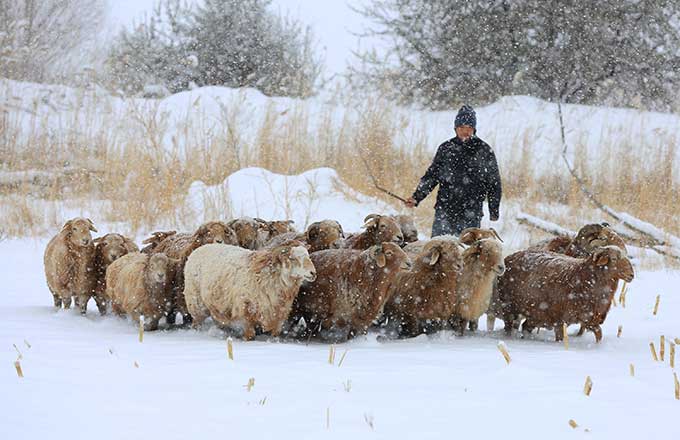Project aims to divert water through the sky
Who says you can't do anything about the weather?
Initial research has begun on a way to modify weather patterns to divert massive amounts of water through the sky from a place where it's abundant to another that's dry.
Scientists are planning to use weather modification techniques to divert water vapor through the sky, and the initial researches of the project have started, according to the Xinhua News Agency.
The Tianhe Project (the name means "sky river") aims to guide rich water vapor that's in the air above the Yangtze River Basin northward to the Yellow River basin, where it would become rainfall, said Wang Guangqian, president of Qinghai University and an academician at the Chinese Academy of Sciences.
In theory, the project could eventually divert 5 billion cubic meters of water annually across regions - an amount equivalent to 350 Hangzhou West Lakes - to alleviate water shortages in the Yellow River Basin and other inland rivers, Wang said.
Wang has been leading a research team of many top scientists looking into the underlying principles for years, including Wei Jiahua, deputy head of Water Resources and Electrical Engineering at Qinghai University.
"By the end of June 2017, we expect to have made some progress toward a certain level of capacity to conduct tests," said Wei, who is also a water resources researcher at Tsinghua University.
Wei said the team has conducted some initial experiments using satellites and ground stations to monitor results, and it will continue to deepen its work with more institutes.
Current research has found stable and orderly passageways that can transport water vapor at the boundary of the troposphere. These passages could be called tianhe, or sky rivers.
Following basic physical laws to transform liquid water on the land to vapor in the air, and then learning how to transport it accurately, the scientists believe they can use rockets to trigger rainfall.
The concept of the sky corridor will maximize the ecological effects of the Qinghai-Tibet Plateau, boosting the economic and social development for the whole country, especially in the northern areas, said Bao Weimin, an academician at the Chinese Academy of Sciences.
"The project has wide and promising prospects for applications," Bao said.
It's not the first time that scholars have considered the feasibility of delivering atmospheric water resources to drought-stricken regions. Discussions have been underway at various levels for decades.
Around 2000, a plan emerged to shift precipitation from the Yarlung Zangbo River area to China's dry northern region.
But scholars never got on board with the concept because of the problem of complex and variable weather conditions, along with geological influences.
For example, in 2007, Gao Dengyi, a researcher at the Institute of Atmosphere Physics under the science academy, concluded the idea wasn't feasible at the time.
- Scientists discuss 'air corridor' of south to north water diversion
- Key water diversion route starts annual transfer in E China
- Water diversion project starts in Shandong
- Fujian, Taiwan to build water diversion project
- Fujian, Taiwan to build water diversion project
- China begins large water diversion project
- South-north water diversion supplies 34 mln people
- Is it a thing? 10 odd jobs where you can make good money
- Message on a bottle: Mineral water company launches drive to find missing children
- Sun Yat-sen champion of national integrity, unity: Xi
- Four killed, two injured after house collapses in C China
- Cross-Straits forum held to commemorate Sun Yat-sen

















